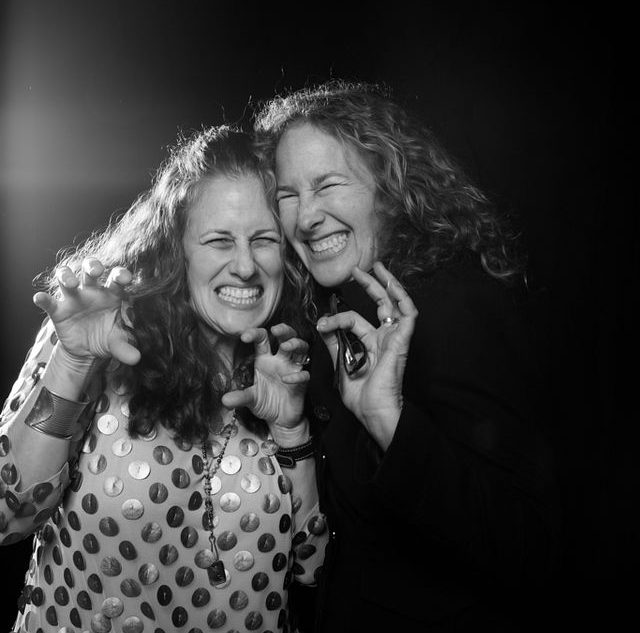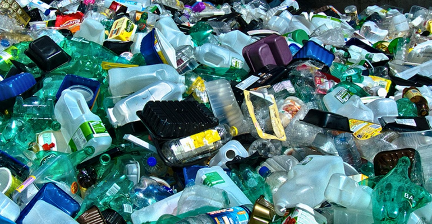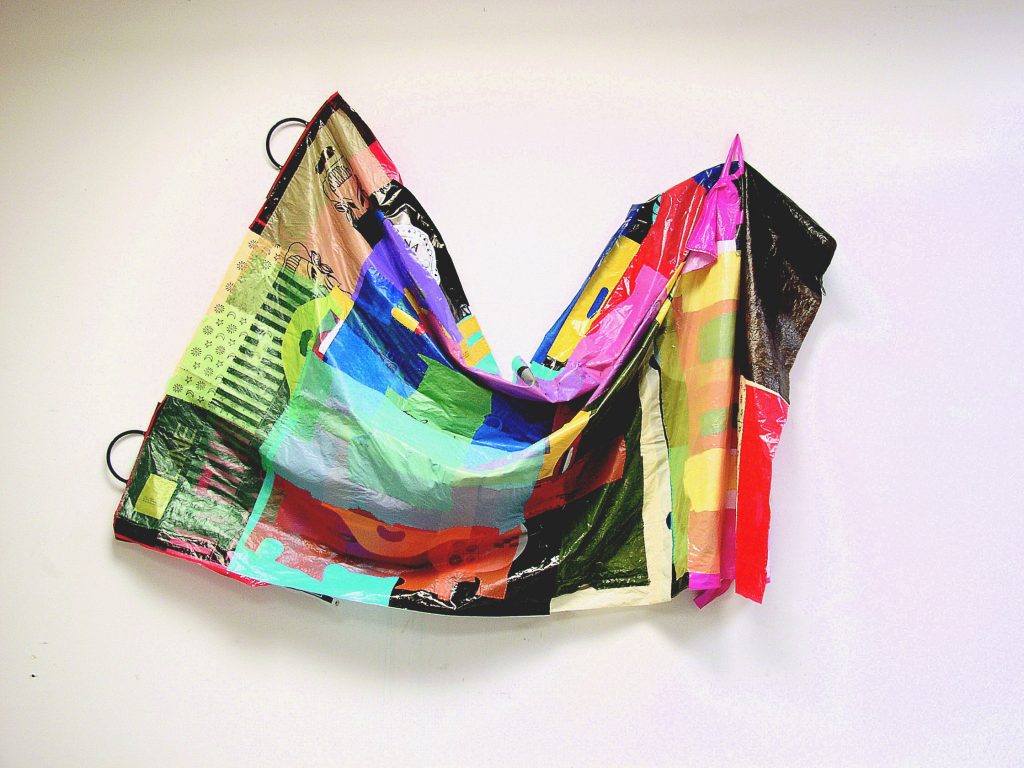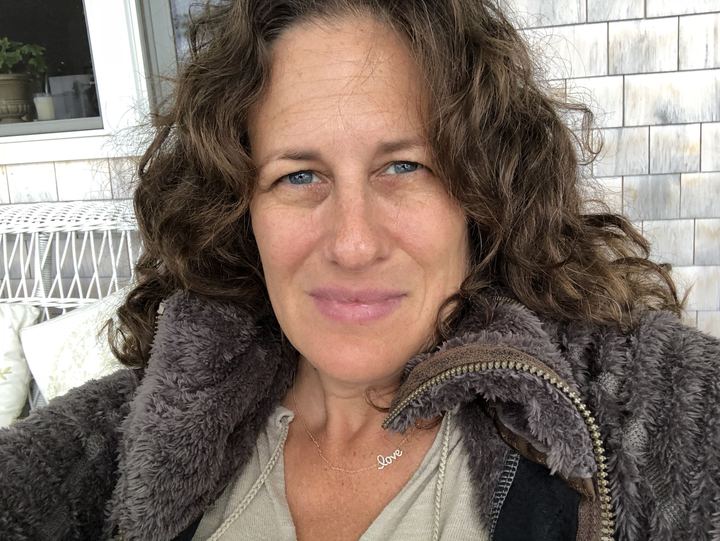Having recognized early in their lives the global problem of plastic pollution, Dianna and Julia Cohen brought together their passions, as well as their individual and collective experiences, and teamed up in the creation of a broader coalition where members are committed to working together to take on the challenge of a world free of plastic. The Plastic Pollution Coalition is a growing global alliance of more than 1,200 organizations, businesses, and thought leaders in 75 countries, working toward a world free of plastic pollution and its toxic impact on humans, animals, waterways, the ocean, and the environment. We selected Dianna & Julia Cohen, Founder and Co-Founder of Plastic Pollution Coalition as our July 18 questions eco-mavens to honor this Plastic Free July.
1. This is the first time that we featured a team of sisters in our eco18’s eco-maven section. Can you tell us a little bit about your upbringing?

We grew up in Los Angeles, California with incredible parents who both had fascinating careers at the intersection of entertainment, civil rights, social services and community health. Our dad is a former military cameraman, journalist, writer, and still, at nearly 90 years old, an active documentary film writer, producer and director. Our mother was a social worker and non-profit Executive Director, managing the Los Angeles Free Clinic, where we got some of our earliest exposure to social justice and public health advocacy.
A major part of what has made the issue of plastic pollution incredibly personal for us was learning of the negative health impacts of plastics, particularly that the chemicals used to make and found in plastic are endocrine disruptors. When Dianna was 11 years old, and Julia was only 8, our 38-year old mother was diagnosed with estrogen receptive breast cancer. Only years later did we learn that the chemicals found in plastic are pervasive in the environment, and are found in our soil, water, and air, and can leach into our food and our bodies, including mimicking estrogen, which can feed forms of estrogen receptive cancers. Sadly, our mother died after 5 years of treatment. This was a harrowing experience in our lives and has made us fiercely determined to communicate to the world the toxic impact of plastics throughout its entire life cycle.
We have viewed every year we have lived past the age our mother passed away as an incredible gift. It’s no coincidence that we founded Plastic Pollution Coalition only a few years after Dianna’s 42nd birthday – the age of our mother’s death. These additional years have given us both a deep wisdom and appreciation of living that we have channeled into our work with PPC.
2. What motivated you to work together and advocate for a world free of plastic pollution?
We have each had our own personal journeys through life, developing very complimentary but unique skill sets and a healthy respect for one another’s expertise, both having a breadth of interests and a deep sense of community and social justice. Dianna comes to the issue with a background in Biology and as a visual artist making her artwork out of cut-up plastic bags sewn together. Julia comes with a Masters Degree in Public Health, focusing on Maternal and Child Health, and many years of experience running diverse coalitions and youth civic engagement initiatives from Washington, DC and around the world. Building on the support we gave each other in our earlier endeavors – when Dianna first learned about the issue of plastic pollution and the Great Pacific Garbage Patch, became obsessed with cleaning it up, and wanted to take it on – it was only natural that we collaborate and bring together our individual experiences in one place, building a broad coalition of diverse businesses, organizations, policymakers and notable individuals working together to stop plastic pollution. We recognized early the massive global problem of plastic pollution, understood the gravity of it, and had the passion to take up the challenge!
3. As experts on this issue, what are the main effects of plastic pollution in our environment and in our lives?

Plastic pollution affects our environment and our lives in every stage of its existence.
Specifically in the environment:
- Plastic pollution is an urgent global crisis.
- Plastics are a source of greenhouse gases, contributing to climate change.
- 8.3 billion metric tons of plastics have been produced in the last 70 years.
- Plastics’ largest market is single-use packaging.
- Studies show that 91 percent of plastic is NOT recycled.
- 8 million metric tons of plastic enter the ocean annually.
- The U.S. is still exporting 225 shipping containers per day of plastic waste to countries with poor waste management, where plastic may be crudely processed in unsafe facilities and burnt in open areas, creating additional pollution and human health concerns.
Health:
- Plastic pollution is an environmental and social justice issue, which disproportionately impacts Black and Brown communities, Indigenous communities, and frontline communities across the U.S. and around the world.
- One study found the average person ingests approximately 5 grams of plastic every week, which is the equivalent weight of a credit card. That’s approximately 21 grams a month, just over 250 grams a year.
- Each stage of the plastic lifecycle from extraction to use and disposal of plastic poses significant risks to human health.
- Health problems associated with plastics, throughout the lifecycle includes numerous forms of cancers, diabetes, several organ malfunctions, impact on eyes, skin and other sensory organs, birth defects and many other impacts.
- Behavioral changes in how we buy, prepare, and store food to reduce our use of plastic can result in a significant reduction in exposure to the endocrine-disrupting chemicals in plastics.
4. Who had the idea of creating Plastic Pollution Coalition? What’s the story behind it?
As we learned about the problem of plastic pollution we realized we would need many stakeholders working together to solve it. We decided to form a coalition in 2009 to bring together scientists, artists, business leaders, and policymakers under a broad tent of working collaboratively to solve the plastic pollution crisis.
A multimedia visual artist and fearless activist, Dianna first started thinking about plastic in the 1980s when she began using plastic bags as her medium. After a few years, she noticed some of the bags in earlier pieces began to break apart and learned that while plastic will break apart into smaller bits, it never disappears.
Dianna was inspired to tackle plastic pollution on a larger scale when she learned of the Great Pacific Garbage Patch, the vast area of floating debris in the Pacific. She tapped celebrities, artists, musicians, chefs, surfers, and friends to publicize what was mistakenly referred to as the “plastic island” in an effort to reverse the crisis. But she quickly learned that plastic is everywhere. To make a difference, we need to “turn off the tap” and stop the flow of new, single-use plastic.
Julia went from graduate school in Public Health to working on reproductive health policy in Washington DC, and eventually working in and running various issue-focused coalitions from HIV/AIDS to international family planning and youth voting.
Having worked for years in coalition politics and environmental public health, Julia suggested the initial concept and the idea of an alliance was born.
We both took on the task of educating, connecting and advocating on alternatives and solutions to reduce exposure for all creatures and the planet to environmental toxins from plastic pollution.
5. Dianna, as a visual artist you have exhibited your work at galleries and museums around the world. What made you explore plastic and turn it into the center of your art?

I started thinking about plastic in the 1980s when I began using plastic bags as my medium–cutting them up and sewing them together to make small and large collages. After a few years, I noticed some of the bags in earlier pieces began to break apart. Someone had hung an artwork of mine in a very sunny day room in San Francisco and all the colors disappeared from the bags and some of the bags began to get fissures and tears in them. Another piece had the misfortune of being hung above a heating vent and it too began to disintegrate.
At first, I got excited because I thought that it meant the plastic bags were ephemeral and organic like us and that they had a finite lifespan. I began to research plastic and found out the opposite was true: plastic never goes away. Plastic will photodegrade or heat-degrade by breaking apart into smaller bits, microplastics, but it doesn’t actually disappear.
When I learned about the Great Pacific Garbage Patch, I knew I had to do something to stop this plastic scourge. I started talking to Julia and to explorers, sailors, surfers, environmental bloggers, scientists, and activists about how to address the problem. We talked about creating an alliance and together founded Plastic Pollution Coalition in 2009. Today, we have more than 1,200 organizations and businesses, plus 150 notable ambassadors, in our global Coalition.
6. Julia, how do you combine your studies in Maternal and Child Health with your advocacy efforts and your passion for a world free of plastic?

Working towards a world free of plastic pollution through a coalition of businesses and groups is in many ways a culmination of all my past efforts. Maternal and Child Health and public health are greatly impacted by plastic pollution and the toxic chemicals used in plastic. From fertility issues to numerous cancers, the chemicals in plastic are polluting ourselves and our world. Plastic pollution is THE issue connecting the dots: from human and animal health to climate change and the environment, social justice and equity, to policy, politics, advocacy and civic engagement.
Highlighting all these issues is the work we do. Most recently by publishing a new Healthy Pregnancy Guide, building on our previous Healthy Baby Guide, both of which help people and families live healthier more plastic-free lives.
7. What has been the reaction of corporations and leaders in general to the work of the Plastic Pollution Coalition? Are they adopting the right measures to combat the plastic crisis from a social responsibility standpoint?
We have more than 600 businesses in our Coalition, and they are working to reduce single-use plastic throughout their supply chains, in their operations, and for most, through the products and services they provide, like alternative material straws, food wraps, and containers.
There is incredible innovation happening with reusable systems, for food delivery, and more—from reusable coffee cup services such as Vessel and KeepCup to reusable to-go food boxes such as GoBox and product delivery systems like Loop.
We have been pushing reuse and systems change for more than 10 years now and consumers are demanding it. Innovative companies are rising to meet that demand and older bigger corporations are seeing the writing on the wall and seeking to, at minimum, Green (or as we often call it, Blue) Wash their efforts while they adapt to the changing landscape.
8. What are your thoughts about the surge of plastic use during the coronavirus pandemic? What actions can people and businesses take to address this problem?
- Right now, the plastic industry is using the coronavirus crisis to try to block laws prohibiting single-use plastic such as plastic bag bans, reported by The New York Times.
- Even in the short term, plastic does not inherently make something clean and safe. A study from National Institutes of Health, CDC, UCLA, and Princeton University scientists in The New England Journal of Medicine has indicated that the virus could be stable on plastic surfaces for as long as two to three days.
- Plastic Pollution Coalition remains unswerving in our work to reduce single-use plastics–specifically for non-medical use that may become a vehicle of virus transmission and cause worsening global plastic pollution.
- Using more single-use plastic disposables during this time increases your exposure to endocrine-disrupting chemicals that are toxic to our own health and that of younger generations.
9. Plastic Pollution Coalition partnered with MADE SAFE® to create a new Healthy Pregnancy Guide. What drove this partnership to develop this Guide?
MADE SAFE® is a longtime Coalition member and we collaborated previously on the Healthy Baby Guide.
We’re thrilled to have launched the Healthy Pregnancy Guide to make it easy for parents, educators, and more to learn about the toxic chemicals found in plastics and other common items, find tips to reduce plastic during pregnancy, gather ideas to avoid other common toxic chemicals, and get safe product recommendations. You can download a free copy of the Healthy Pregnancy Guide here.
10. What can you recommend each of us do during these times of pandemics and climate threats, especially during Plastic Free July?
During these unprecedented times we all need to support local farmers markets, grow our own food if you have space or create a small scale garden in pots – even indoors, do your best to keep thinking reusable rather than disposable. Bring your own reusable water bottles, bags, utensils, cups, food containers, etc. wherever you go. And of course support Plastic Pollution Coalition!
11. If you could achieve a big environmental change next year, what would it be?
Scale up reusable delivery models! Pass The Break Free From Plastic Pollution Act! Stop new plastic plants from being permitted and/or built.
12. It’s been documented that recycling rates nationwide are well under the levels that they should be. To your knowledge, what efforts are local authorities making to improve this process? Is there a poster child city or state that can serve as inspiration?
Recycling plastic has not and never will be a solution. As we like to share from a report recently released by one of PPC’s scientific advisors Chemical Engineer Jan Dell:
“Outside of the waste and recycling industry, the U.S. public assumed that safe, clean U.S. factories ground up the plastic and American workers made it into new products. With credit to the New York Times Opinion video “The Great Recycling Con,” some of us thought it was like a scene from Toy Story. The public didn’t know that the U.S. exported 276,200 shipping containers (1.5 million metric tons) of plastic waste to countries with poor waste management in 2017. As shown in the documentary “Plastic China,” it turns out that our plastic waste was not cleanly or efficiently processed into new plastic products that Americans bought. It was sometimes crudely sorted, shredded and melted by impoverished families in unsafe, unhealthy conditions into low quality plastic that never returned to the U.S. in new products. A waste and recycling expert now states that even before China’s policy changes, “a lot of areas fooled themselves into thinking they were recycling when they were really not.”
13. What do you do when you are not fighting single-use plastic?
We don’t think of it as fighting, we think of it as making positive change. We both love to swim, roller skate, hang out with our families, enjoy nature, make art, do puzzles, garden, cook, and do our best to save and protect the planet as we work for a more just equitable world.
14. How do you see the future of our planet worldwide after COVID-19?
2020 is an opportunity to reimagine the world we want to live in and put into action the system change necessary to support and nurture a healthy life on the planet.
15. Who inspires you?
Dianna’s niece (Julia’s 8-year-old daughter, Helena) and our nephews, many of whom are also PPC Youth Ambassadors are our greatest inspiration. We are inspired by many leaders in our movement both young and old, including Her Deepness Dr. Sylvia Earle, Algalita Founder Captain Charlie Moore, Break Free From Plastics’ Froilan Grate of Zero Waste Cities in Manilla, Melati and Isabelle Wijsen the Founders of Bye Bye Plastic Bags Bali and YouthTopia, Kristal Ambrose the Founder of Bahamas Plastic Movement, Hannah Testa, the Founder of Hannah4Change, and Lily Platt the Founder of Lily’s Plastic Pick up.
16. What’s your secret to balancing your life between work, advocacy, and family?
Balance is hard, especially these days. We both love to garden, make art, swim, and cook. Our families are very involved in and supportive of all our advocacy work, so that helps too!
17. What would you say to anyone, especially young women, looking to follow in your footsteps?
Follow your passions, believe in yourself, don’t be discouraged, always collaborate, learn from your mistakes, figure out what you don’t want to do and stay focused on the bigger picture.
18. What is next for Plastic Pollution Coalition?
We have been super busy, like many other non-profits, moving all of our in-person events online and are lucky that we were already a virtual organization. We are in the midst of many Plastic Free July activities around the world including our own upcoming webinar “Plastics, Health, and Your Family” featuring Mama Glow founder Latham Thomas and MADE SAFE® founder Amy Ziff on July 29th at 4:00 pm EDT.
 Food
Food Farmers
Farmers Sustainable Living
Sustainable Living Living Planet
Living Planet News
News